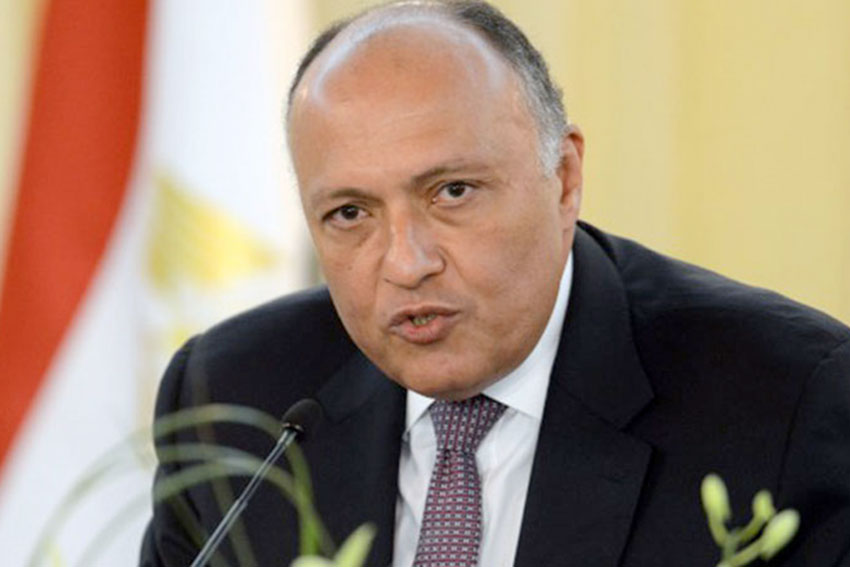Having regained its traditional stabilising role in the Middle East, the country is taking a leading role in regional and global counterterrorism efforts

The increased efforts that Egypt has taken to step up its fight against terrorism were recognised at the highest international level last month, as the country was elected as a non-permanent member at the UN Security Council for a two-year term.
The 193-member General Assembly elected Egypt – which has been a non-permanent member on four previous occasions – with 179 votes in favour.
“Egypt will undertake every effort to fulfil its responsibility and cooperation with the other 14 members of the Security Council,” Egypt’s Foreign Minister Sameh Shoukry said following the country’s election on October 15, 2015.
As the militant group known as the Islamic State of Iraq and the Levant (ISIL) continues its brutal campaign in the Middle East, Egypt has intensified its own war on terror over the past year, not only in dealing with an escalating jihadist insurgency in the Sinai Peninsula, but also calling for closer cooperation between allies to combat terrorism in the region as a whole.
Addressing the 70th United Nations General Assembly in Washington in September, President Abdel Fattah El Sisi said Egypt would press on with its ruthless confrontations with Islamist extremists and urged the nations of the Middle East to join forces to combat the threat of terrorism.
“How much blood must be spilled in countries that suffer from the terrorist scourge before the international community awakens to the reality of this plague, which Egypt is now confronting at the forefront of Islamic countries, as the first line of defence? When will the international community acknowledge that there is no alternative to solidarity between all peoples to defeat this evil, wherever it exists?” the President said in his speech.
Mr El Sisi pointed to Egypt’s role in several conflicts, including Yemen, Libya, Syria and Palestine, towards helping achieve greater regional stability.
“Egypt’s efforts in talks with Libya were the main reason behind the UN Security Council’s resolution to its crisis,” he stated, while affirming that Egypt’s participation in the Saudi-led coalition in Yemen was not only in response to the Yemeni government, but “our responsibility to protect the country’s independence.”
The Egyptian president further cited the Syrian opposition conference held in Cairo in January to unite opposition forces as one of Egypt’s main achievements of addressing the Syrian civil war.
Furthermore, Mr El Sisi also called on Arab states to make peace with Israel, saying that resolving the Palestinian question could “change the face of the region” – a comment that was immediately welcomed by Israeli Prime Minister Benjamin Netanyahu, who commended the call for expansion of peace with Israel to include additional Arab countries.
Egypt, then, is certainly finding its feet again after years of political and economic turmoil, and gradually regaining its traditional stabilising role in the Middle East. The country has a strong track record of tackling terrorism and has undoubtedly been a reliable ally in the global war on terror in terms of intelligence sharing, investigations and interrogations over the years – a position it looks to renew with its seat on the UN Security Council.
A key partner in counterterrorism, not just with its neighbours, but with the West, Egypt’s cooperation with the global community largely centres on its relationship with the US; an alliance that has been revitalised this year.
In March, US Secretary of State John Kerry expressed his support for the “important role that Egypt is playing in the coalition against ISIL and the challenges of violent religious extremism that are manifested in many ways in the region.” That was followed by Washington’s decision to release military aid to the country later that month, and again in June.
The UK government has also been in talks with Egypt over ways the country can “work together to protect both countries from the threat of terrorism,” according to a statement from Downing Street in February.
Indeed counterterrorism is expected to be high on the agenda as President El Sisi visits Prime Minister David Cameron in Downing Street this week. Mr El Sisi in particular will be delighted to point out how Egypt’s improved security has led to increases in the numbers of tourism and investment from Britain despite recent unrest and the ongoing insurgency in Northern Sinai.
UK businesses have invested over $21 billion in Egypt over the past five years, while UK visitors to the country recovered to hit 900,000 last year. With enhanced security measures in place to protect tourist areas and security forces situated at international airports, the Foreign Commonwealth Office (FCO) has no travel warning issued for the popular Red Sea Resorts of Sharm El Sheikh and Hurghada, nor along the Nile river. The FCO states that most visits to the country are “trouble-free”.
0 COMMENTS